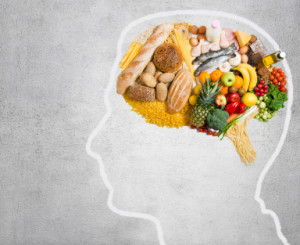3 Healthy Eating Habits to Feed Our Minds
At a time when Americans are more health conscious than ever before, it’s ironic so many of us suffer from the worst mental health in history. We exercise and carefully choose our diet. We worry about cardiovascular disease and dementia. Yet we neglect our heart and our mind.
Why aren’t we as intentional about what we put in our heads as what we put into our bodies?
This past week the cortisol in my brain flooded my system. I am wired to be anxious. And when I experience emotional earthquakes, I’m often left with aftershocks for a week or more. For me it manifests in fatigue, nervousness and unclear thinking. You can’t see it but I can feel it. And it sucks.
Work contributed to the earthquake—fiscal year end pressures, departure of a colleague, heavy workload. Personal factors played a role, too. Seems foolish to look back on the past few weeks and see how I coped. I drank more beer, I watched more baseball, I worked harder, and I slept in later, all but eliminating time to process. If my pain had been physical rather than mental and emotional, I would have been more careful to heal.
How do we build better mental and emotional “eating habits”?
This week I spent two days listening to thoughtful and encouraging speakers at the Willow Creek Global Leadership Summit. Here are three new habits I’m working on based on that experience:
1. Connect. The Summit provided the outlet, but most importantly, I attended the conference with others from our church to discuss our reflections outside of the actual sessions. I also live tweeted my key learnings each day while scanning the others on Twitter using the conference hash tag. This blend of listening to powerful thought leaders, discussing personal applications and sharing learnings with a network was powerfully instructive.
Conferences only come along a few times a year but we always have the ability to connect with thought leaders, community and networks.
2. Be Brave. It’s easy to spiral down mentally or emotionally as fear causes us to cope in ways that perpetuate our decline. Bill Hybels opened the conference by addressing the need for leaders to have courage amidst the failures that come with progress. Mark Burnett spoke of his own journey to becoming one of the most successful television show producers amidst great hostility to his ideas. And Brene Brown talked about the bravery required to be emotionally vulnerable.
Having the courage to love ourselves, be seen by others for who we are and persist amidst hostility will help us to emotionally thrive.
3. Re-Think. Dr. Henry Cloud pointed out that successful leaders don’t view failure as personal, pervasive or permanent. Instead, they write down and dispute the lies they are tempted to tell themselves about their own value. Second, they focus on what they can control. And third, they connect with others who encourage and support them.
When we realize that our minds spiral into unhealthy thought patterns, we can think more constructively to remain healthy.
Leadership requires concern for ourselves, mentally and emotionally, before we can provide it to others.
What healthy habits bring you mental and emotional health?










Comments are closed here.